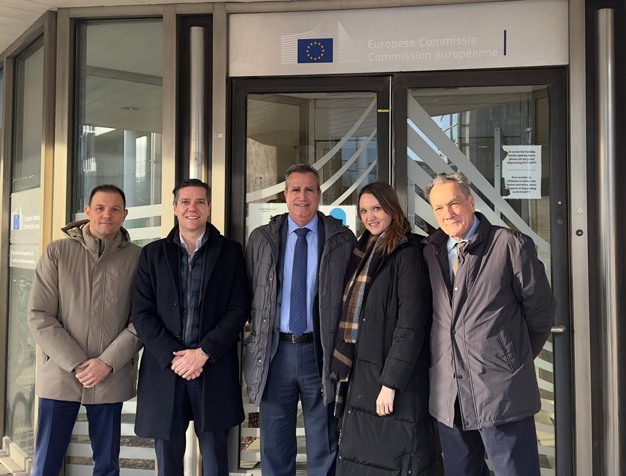Spanish officials want immediate action from the EU regarding imports from Morocco. Fepex officials, led by the president of the Tomato Committee, Juan Jesús Lara, together with representatives of the Association of Fruit and Vegetable Producers' Organizations of Almeria, Coexphal (integrated into the Federation), and from the European Fruit and Vegetable Association, Eucofel, have met in Brussels with officials from the European Commission's Directorate General for Agriculture to address the situation of the Spanish tomato producing and exporting sector. They demanded an effective implementation of the two rulings of the Court of Justice of the EU on Western Sahara, which they claim should result in the exclusion of tomatoes produced in the Sahara of the tariff concessions included in the Association Agreement with Morocco and the establishment of measures to identify the origin.

"The meeting served to outline the various causes of the loss of competitiveness of Spanish tomatoes against third country productions: the difference in labor costs, far fewer phytosanitary and environmental requirements, as well as a lack of control of imports and compliance with tariffs", the group says.
"On October 4, 2024, the EU Court of Justice made two important rulings directly affecting trade in agricultural products, which have been positively viewed by the sector grouped in Fepex, as two measures were established that should contribute to correcting a situation that puts Morocco at an advantage, and which jeopardized the sustainability of European tomato production."
These measures include the cancellation of tariff preferences. "Agricultural products from Western Sahara are excluded from the tariff preferences granted to Morocco under the Association Agreement. From October 4, 2025, these products will be subject to a different customs regime, including ad valorem duties and adjusted entry prices."
Then there is the identification of origin. "The ruling establishes that the origin of products such as Western Sahara tomatoes must be indicated, both when imported and when sold to the consumer."
Impact on the European tomato market
According to the Spanish representatives, the EU tomato sector has suffered a significant loss of competitiveness in the last decade, including the decline in production and exports. "Since 2014, fresh tomato production in Spain has fallen by 30.71%, while exports have declined by 38.73%. This decline contrasts with the sustained growth in exports from third countries." Then, there's the increase in imports from Morocco. "In the same period, Moroccan tomato imports into the EU increased by 42.5%, causing a clear displacement of European products on the market."
Shortcomings in the implementation of the EU-Morocco Agreement
The Agricultural Protocol of the EU-Morocco Agreement includes safeguards designed to protect the European sector, such as an entry price system and cooperation measures. "However, its implementation has been ineffective, allowing Moroccan exports to expand. Also, the 2014 modification of the method for calculating import value caused some market distortion by including more expensive tomato categories (cherry tomatoes) that are not representative of the real price of round tomatoes, the most sensitive in the EU.:
Industry demands
During the meeting, the participants argued for for:
1. Effective implementation of the CJEU rulings;
-
Excluding Western Sahara products from tariff preferences.
-
Ensuring the identification and control of the origin of these products.
2. Revision of the EU-Morocco Agreement
-
Adjusting entry prices to reflect market realities.
-
Temporarily limiting imports from Morocco until a level playing field is achieved.
3. Increased transparency and cooperation
-
Strengthening mechanisms for collecting data on import prices.
-
Establishing clear measures to ensure the sustainability and survival of the European tomato sector.
The meeting came to a close with a commitment to keep in contact to continue analyzing the development of the European tomato market. The list of participants included the president of the Fepex Tomato Committee (under which the associations of the main Spanish production areas are represented), Juan Jesús Lara Cruz, who is also the director of the CASI cooperative; José María Pozancos Gómez-Escolar, general director of Fepex; Luis Miguel Fernández Sierra, director of the Association of Fruit and Vegetable Producers' Organizations of Almeria, Coexphal; Luis Martín Martín Martín, technical director of Fepex, and Beatriz Aguado, general secretary of Eucofel.
For more information: www.fepex.es
